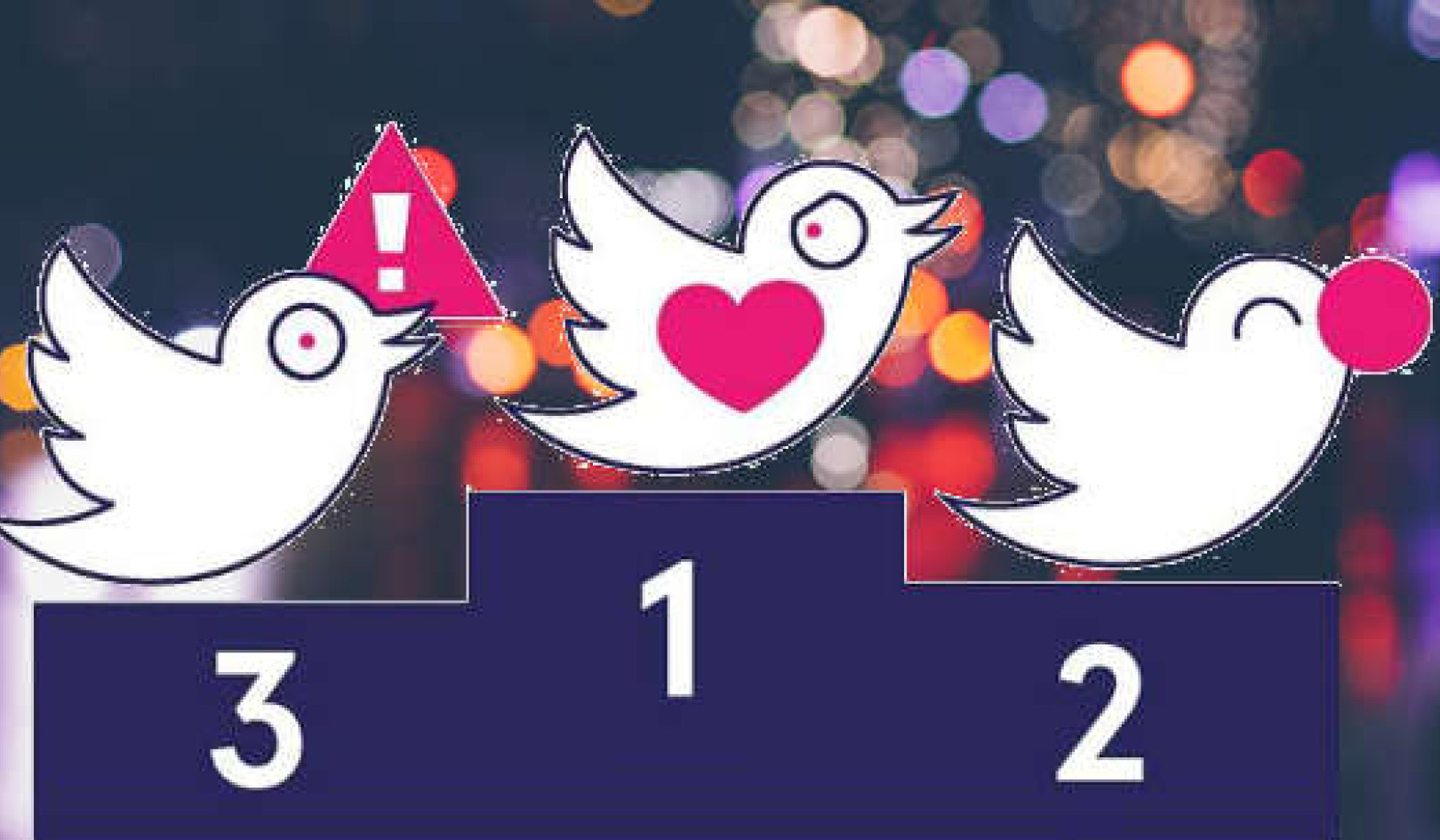
Image by Mystic Art Design. (Colorized by InnerSelf.com)
The dream is an invaluable commentator
and illuminator of life.
Listen to the wisdom of the dream.
-- Dr. Carl Jung
Jenny vividly recalled her "lost locker" dream. She is back in college, cramming for a final exam. Then she can't find her locker, her textbook, or the classroom where the exam is being held. She wakes up in a sweat. As Jenny began to figure out what the dream meant, she thought it probably had something to do with how lost she feels at her new job.
The dream mirrored her fear that she was inadequately prepared for her new position. Since she had always performed admirably in school and at work, she realized she had to cope with lingering doubts that she may not do as well this time around.
Dave's "lost locker" dream gave him a different message. In the dream, Dave went to basketball practice. But he couldn't find his locker, or even remember the combination. In waking life, Dave spent a lot of time working and not much time playing. When he thought about it, he felt his intuitive mind was telling him to reclaim the athletic side of himself that had been lost.
Every dreamer has at least one dream of losing something, and each dream is custom designed by the intuitive mind for that dreamer. You really are your own dream expert. So if your head is tucked away in a dream dictionary that someone else has written, please take it out! If you accept the challenge of working with the practices in this chapter for at least a month, you will notice how much easier it will become to understand what your dreams are telling you.
Dreams are a direct conduit to the intuitive mind. You can use your dreams as problem-solving tools in the waking world -- but first you have to remember them and learn to decipher their sometimes confusing messages. Through the practices and examples in this chapter, you will learn how to use your intuition to retrieve, respect, and listen to the insights embedded in your dreams.
The noise of the day silences the intuitive voice, but that voice gets a chance to speak clearly through a dream, providing a warning, direction, or guidance. The dreaming mind is the same intuitive mind where impressions of all the events and interactions with others since the moment of birth, or perhaps even from the beginnings of time, are recorded. The mind has complete access to all this dynamic information and, like a computer, sorts through the possibilities and communicates to the individual via a dream.
This point was brought home to me dramatically some years ago. I had a puzzling dream about a high school buddy, Carl Sloan, whom I hadn't seen in twenty-five years. "Why now?" asked my logical mind. Intuitively, I knew that the universal data bank must have been tapped for a good reason, so I waited to find out. Some weeks later, I met a man who looked exactly like Carl and we fell in love. From that moment on, I had complete respect for my intuitive dreaming mind, which had prepared me for this intense romantic involvement.
In this chapter, you'll learn:
* how to access the illuminating wisdom contained in dreams.
* how to use intuition to interpret your dreams.
* how to use the DreamShift process to learn from your dreams.
* how to turn negative dreams into positive dreams.
* how dreams come true.
* how to invite a dream to visit.
The Wisdom of Dreams
Dreams are full of wisdom -- wisdom from inside you. For months, Ed harbored a secret desire to shift careers and become a professional speaker. He didn't share this longing with anyone else. Then, Ed had a dream in which he was searching for the best speaker for a meeting. Upon awakening, he realized that he was headed toward a career as a speaker. From that moment on, his talents and abilities as a speaker have been widely sought by others.
Other dreams can resolve seemingly insoluble problems. The staff at the Fetzer Institute in Kalamazoo, Michigan, was struggling with how to build community, and realized they needed a break space where everyone could gather. They consulted an architect, who gave them a costly estimate and told them the building project would take a long time to complete. One staff member was unwilling to wait for this much-needed social space. She solicited help from her dreaming mind by programming a dream, which gave her a simple and highly practical solution (you'll read about programming a dream later in this chapter). She dreamed that they had created a break space from an existing conference room, which none of them had previously considered. She told the group, and they acted on it. A great solution at minimal cost.
Dreams can also provide insights into puzzling relationships. Anita's husband hired some attorneys to help his mother through her messy divorce. They seemed competent, but for some reason they made Anita uneasy. That night she had a dream in which the attorneys appeared as gangsters with beady rats' eyes, who came to their house with guns to rob them, causing her mother-in-law great distress. In the dream, her husband was vacuuming and was nearly electrocuted when the gangsters spilled a vase of water on the outlet. Anita rushed to pull the plug, saved her husband's life, and told the gangsters to leave. She woke up thinking hard about these attorneys. In real life, she felt, the attorneys mirrored the dream gangsters because they held her husband and mother-in-law up for "ransom" by demanding her car, her certificates of deposit, and all her jewelry before they would go to her divorce hearing. This dream clarified for Anita why she was repulsed by the lawyers. As in her dream, she advised her husband to "pull the plug" on them and find some new attorneys.
Sometimes, dreams really can foretell the future. Vern had a dream that he and his partner Jamie had one chestnut horse. The next day, they responded to an ad for a horse and found that it looked exactly like the one he had seen in his dreams. He bought the horse, feeling that it was already a done deal.
You can thank the dreams that give you a red-flag alert to trouble up ahead. Years ago, I had a dramatic and crystal clear dream that probably saved my life. In the dream, I was driving a car, put my foot on the brake, and it went right to the floor. The car turned over, but I got out unharmed. A week later, I was driving down a heavily trafficked street in Washington, D.C., when I put my foot on the brake. The brake failed and my foot went right to the floor, just like it had in the dream image. The emergency brake didn't work either. My dream had alerted me to this possibility, and my intuitive voice told me to make a quick right. I did, and the car came to a stop between two clothing stores -- the only area of safety.
Intuitive Dream Interpretation
Whenever I interpret a dream, I feel like a detective digging deeply to unravel the mystery embedded in it. Here are two ways to look at dream symbols:
* The dream literally provides an answer
* The dream speaks symbolically
The Literal Dream
If your dream is literal, what you see is what you get. When Bill Chada served in the Air Force years ago as a counterespionage and criminal investigator, he learned a self-hypnosis technique used to help the investigators concentrate on something they had witnessed: a conversation, crime scene, or any activity in which they had to be explicit about minute details. Most important, the investigators were able to put themselves to sleep quickly, which was especially helpful when they had only a short time between assignments to rest.
Bill continues to use this "quick sleep" technique to connect with his intuition. At one point, Bill was an independent sales representative. He had developed a reputation among his customers as a guy who could either provide an item or know where to get it. Everyone would say, "Ask Chada". Bill never thought that he was doing something worthwhile by securing these items as favors for his friends. Years later, Bill and his wife decided to develop their own business. They looked at a number of different situations including wholesale, distribution, retail stores, and franchises. They probably considered a hundred different businesses, but nothing really clicked.
After a troubled evening of equivocating about the business, Bill used his self-hypnotic technique to put himself to sleep. He was suddenly awakened from a sound sleep at around two in the morning. He still recalls the clarity of the dream image that led to the name, ASAP, that he gave his business, which focuses on advertising, specialties, and promotions. In the dream, the entire concept, including the name and logo, was displayed in front of him, as if he were looking at a slide projection. He started making notes on a pad he kept by the bed. He was so excited that he couldn't go back to sleep, so he went down to the office. He drew out his logo, which has remained unchanged to this day, and wrote out the entire business plan detailing the concept and the direction he wanted to go. Although the business plan has been modified and expanded over the years, it still contains the basic formulations presented to him in this dream.
Ask for a Literal Dream
You may be surprised to learn that you can actually ask for -- and get -- specific types of dreams. A literal dream is a great shortcut when you are looking for a specific answer to a concrete problem: a new career, a theme for a speech, a name for your baby, a healing balm, words to amend a misunderstanding, or even a gift for a loved one.
Lois wanted to find relief for her aching back. She asked her dreaming mind to help her find a healing balm. Before going to sleep she said to herself, "I would like my intuitive mind to show me how to heal my aching back. I will fall asleep readily, sleep through the night, and awaken with the insight fresh in my mind." In her dream, she saw herself walking in the country, breathing the fresh air and feeling the blood circulate through her entire body, including her back. She began taking refreshing walks that day, and her back did indeed begin to relax.
You too can program a literal dream. Ask for insight into the issue and give yourself the strong suggestion that you will sleep through the night and awaken with the insight fresh in your mind. Be sure to record what happened in your journal in a new section, Dreams.
The Symbolic Dream
It is more likely that the content of your dreams will be symbolic or metaphoric. For example, if you dream that a lion is roaming around your apartment, chances are this is a symbolic dream, not a literal one! As you dig underneath the dream symbol, you will find the true meaning. Dream symbols are fun to decode, but sometimes the symbolic content can be alarming.
Just Ask
When you awaken from a bad dream, calm down, get centered, feel yourself connecting with the menacing dream symbol, and ask, "What are you really trying to tell me?" You will be amazed at how well this technique works. In fact, this is a most effective tool for helping children deal with nightmares.
How Dreams Come True
A precognitive dream is one that eventually comes true. Its function is to warn or prepare the dreamer for a significant event. You can't always prevent the event that the intuitive mind senses is coming, but you can honor the dream by being grateful that you were prepared.
How can you tell a precognitive dream from other kinds of dreams? Precognitive dreams are unusually vivid and unforgettable. These dreams grab you by the shoulders, give you a good shake, and demand to be remembered. I have learned that my precognitive dreams are unique, distinct from any others. Precognitive dreams can be life-saving; can provide a warning about an accident, death, or health challenge; or can prepare us for calamities and natural disasters.
One morning, I awoke with my heart beating rapidly, in a cold sweat. Even catching my breath was difficult. I looked around my bedroom for some trace of reality, something to tell me I was safely at home and not frantically running to catch a connecting flight at the airport. In my dream, I had lost my luggage and missed my flight.
I dismissed this dream as a mere reflection of my fear of flying, but I was in for a surprise the following day. This nightmare became a reality when I missed a connecting flight because the first plane was three hours late. I had to rush to another airline, catching a flight with a minute and a half to spare. As in the dream, my luggage was lost.
After ignoring many dream warnings about accidents and robberies that later came true, I began to honor my precognitive dreams as the best inside source of information I could find. Looking back at the flight, I realize that my intuitive ability was sending me a warning through the dream about the delayed flight.
Here's how a precognitive dream prepared Anita for a sudden relocation. One night, Anita dreamed that she met the previous owners of her house. They proudly showed Anita and her husband their new mansion and said, "Anita you want to move, too, and you should, because look how lucky it was for us!" This dream stuck with her, and she was already considering moving when -- four days later -- a tornado devastated her entire neighborhood. Although she suddenly had to pack up and move, her dream had prepared her.
Helping You Say Good-Bye
Precognitive dreams can prepare us for the transition of a loved one. I learned this the hard way, when I had two precognitive dreams that I did not understand until it was too late.
I had a dream two weeks before my dear friend Victor Beasley died. This precognitive dream snuck through my dream doorway unattended. I dreamed that Victor and I were going away together for a business meeting. I noticed he left a jacket and a couple ties behind. I thought I would just give them to him when I saw him. I packed them into my suitcase. Then he came into my room and I said, "You really need to take this and pack it and be responsible for your clothing:"
At the time, of course, I had no idea that Victor would die in two weeks. Symbolically, the jacket was there to keep me warm when I heard this numbing news. The ties he left behind were the ties to me and his other friends in the intuition community.
Edgar Cayce, the late "sleeping prophet," once said, "Nothing important ever happened to an individual which was not first previewed in a dream." These words rang in my ears one year. On November 18th, 1 had the following dream, which I recorded in my journal:
I was at Lilia's. There were a lot of people around at a class or a meeting. I was surprised that I didn't know most of the people. Mom was in the next room -- she was still sleeping when we got up. She couldn't get out of bed. A man came over who looked like Pat from the Bahamas. He was all upset about the break-up with his girlfriend.
A few days later, on November 21, my husband and I went to a comedy club with two other couples. The comedian, who looked like my friend Pat, was talking about his girlfriend breaking up with him. When I got home, there was a message from my father saying, "Your mother just left me." I called back the next morning and Pop related how Mom had pains and was taken to the hospital for observation over night. He was joking, in his own way, that Mom had left him. But the dream had referred to a break-up. The comedian's reference was one, and this comment from Pop was another. The part of the dream where Mom was sleeping and couldn't get out of a bed indicated that something was wrong.
The dream's intent was to prepare me for her death on November 28. Just like the song fragment, "Are you going away with no word of farewell", which echoed in my mind for days before her passing, I was given this inside information to prepare myself for the actual event and so I could say good-bye. Again, I didn't heed the warning in this dream -- perhaps because unconsciously I did not want to hear this message. Now, however, I am vigilant whenever I dream about a loved one being incapacitated.
Dreams as Tools in Daily Life
Not all precognitive dreams are about bad things. They can be practical, reminding you of an upcoming appointment, or helping you remember to buy an anniversary gift. They can also be happy: You may see your impending marriage, a connection with an old friend, a new love affair, the healthy birth of your children, or an unexpected gift of money.
Often, we can access higher spiritual states through dreams. Dreams occur in kairos -- sacred time, or the eternal now. The subconscious steps into this sacred time to bring wisdom, energy, clarification, and insight from sacred time into kronos -- chronological time, our day-to-day lives. Out of this sacred space we can retrieve some powerful information that we can use to change our lives.
One very good reason to record your dreams in your journal is that you will be able, more and more, to distinguish the true precognitive dreams right away, and act on them in a meaningful way.
Reprinted with permission of the publisher,
Beyond Words Publishing. ©2001.
http://beyondword.com
Article Source:
PowerHunch! Living an Intuitive Life
by Marcia Emery, Ph.D.
 Call it a gut feeling, a sudden knowing, a bolt from the blue. PowerHunch! underscores the strength of this quiet yet powerful force that adds a flash of clarity to any situation. Whether it’s relationships, career, balance and healing, or simple everyday decision-making, intuition gives everyone an edge. Now Dr. Marcia Emery shares the “secrets” of intuition so you can make it a part of everything you do.
Call it a gut feeling, a sudden knowing, a bolt from the blue. PowerHunch! underscores the strength of this quiet yet powerful force that adds a flash of clarity to any situation. Whether it’s relationships, career, balance and healing, or simple everyday decision-making, intuition gives everyone an edge. Now Dr. Marcia Emery shares the “secrets” of intuition so you can make it a part of everything you do.
Info/Order this book. Also available as a Kindle edition.
About the Author
 Marcia Emery, Ph.D., is a psychologist, consultant, international lecturer, and college professor. The author of PowerHunch!, The Intuitive Healer and Dr. Marcia Emery's Intuition Workbook, she has been featured in USA Today, Family Circle, and Woman's World. She has presented intuition seminars to such organizations as Lucent Technologies, Amway Corporation, Junior League, and Hewlett Packard.
Marcia Emery, Ph.D., is a psychologist, consultant, international lecturer, and college professor. The author of PowerHunch!, The Intuitive Healer and Dr. Marcia Emery's Intuition Workbook, she has been featured in USA Today, Family Circle, and Woman's World. She has presented intuition seminars to such organizations as Lucent Technologies, Amway Corporation, Junior League, and Hewlett Packard.























